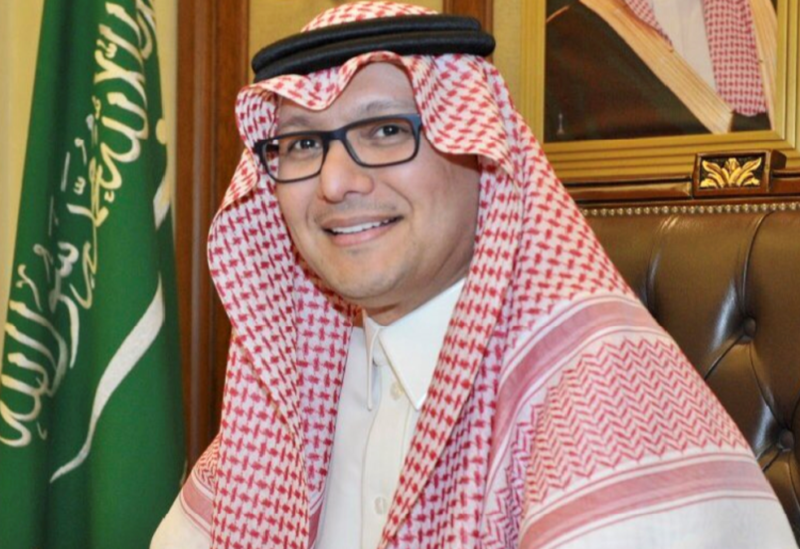
by Najia Houssari — arabnews.com — BEIRUT: Saudi Ambassador Walid Bukhari praised Lebanese Prime Minister Najib Mikati’s efforts to protect his country and restore relations with the Kingdom. It came as the ambassador held meetings throughout the day with Lebanese leaders on Monday, concluding with a grand iftar held at the Saudi Embassy in Beirut for Lebanese national figures, including Mikati and other former prime ministers. The improvement of Saudi diplomatic activity has an important political dimension in Lebanon, with the country preparing for parliamentary elections. Hezbollah’s rush to help its allies win an overwhelming majority in preparation for holding presidential elections in its favor is offset by the opposition currently finding itself fragmented. At the end of October, Saudi Arabia summoned its ambassador to Lebanon for consultations and demanded the departure of the Lebanese ambassador from the Kingdom within 48 hours. The rapid deterioration of diplomatic relations between the two states came against the background of offensive statements made by former Lebanese Information Minister George Kordahi about the Kingdom.
Riyadh accused Hezbollah of “controlling the decision (making) of the Lebanese state, turning Lebanon into an arena and launching pad for implementing (the) projects of countries that do not wish the best for Lebanon and its brotherly people, who — from all sects and religions — have historical ties with the Kingdom.” Lebanon’s Grand Mufti Sheikh Abdul Latif Derian, meanwhile, welcomed the return of the Saudi ambassador to Beirut. During his meeting on Monday with the ambassador, he stressed the importance of maintaining the special relationship with the Gulf Cooperation Council states, particularly Saudi Arabia.
Derian praised the return of Gulf diplomacy to Lebanon, particularly the ambassadors of the Kingdom and Kuwait. He said the return raised hope for Lebanon despite its difficult circumstances. Bukhari said: “We wish Lebanon and the Lebanese people good fortune,” before visiting the Supreme Islamic Shiite Council and meeting with Deputy Head Sheikh Ali Al-Khatib. He also visited the headquarters of the Druze community in Beirut, and met with Sheikh Akl of the Unitarian Druze community Dr. Sami Abi Al-Muna. He concluded his tour by meeting the Maronite Patriarch Bechara Al-Rahi in Bkerke.
On Friday, Hezbollah Secretary-General Hassan Nasrallah held an iftar banquet for his two Maronite allies, the head of the Free Patriotic Movement Gebran Bassil, and the head of the Marada Movement Suleiman Franjieh, who are both candidates for the presidency. In the meantime, the electoral campaigns continued with the announcement of the lists of candidates for parliamentary seats. On Monday, in his speech during the announcement of an electoral list in the district of Zahle, the head of the Lebanese Forces Party, Samir Geagea, attacked “the axis of resistance — Hezbollah, the Syrian regime and their followers in Lebanon,” referring specifically to Bassil. Geagea addressed the average “Shiite voter,” saying: “Do you know that when you elect Hezbollah … you elect a person named Gebran Bassil, who was planted by Hezbollah in its lists across the country, and with every vote you give him or his candidates, who are planted in Hezbollah’s lists, you increase his chances and his credit so that he dominates you again.”
On Saturday, Bassil attacked “those who betrayed the Free Patriotic Movement” and threatened them with accountability. While Nasrallah spoke to Hezbollah’s Al-Manar TV about political developments on Monday evening, one observer expressed his fear that “Hezbollah is seeking to devote itself and its position as a determinant and maker of presidents and the biggest and main player.”
The Lady of the Mountain Gathering, a Christian group which opposes Hezbollah, said that the party “seeks to turn itself into a national force that makes the presidents and forms the authority with all its hierarchies, regardless of the constitution and the choices of citizens.” It too welcomed the return of the Saudi and Kuwaiti ambassadors to Lebanon, and praised it “as a glimmer of hope for Lebanon to restore its Arab identity and remove the nightmare of the occupation, so that it can rebuild the state, achieve reforms, fight corruption and restore effective sovereignty.” The Gathering warned that Lebanon “is under Iranian occupation, and we call on Lebanon’s friends to help liberate it from this occupation.”



